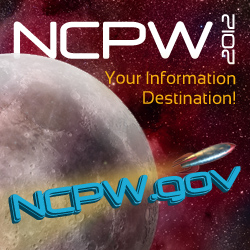OnGuardOnline.gov Celebrates National Consumer Protection Week
March 4-10, 2012, is the 14th annual National Consumer Protection Week (NCPW)! NCPW is a coordinated campaign to focus attention on the importance of consumer education. To celebrate, federal agencies, state and local governments, and consumer organizations are promoting free resources to help consumers better understand their rights in the marketplace.
OnGuardOnline.gov wants to get involved, too. This week, we’re highlighting our most popular articles to help people avoid online frauds and scams. Take a look, and be sure to share these tips with your friends and family, too:
- Avoiding Online Scams: Ten steps you can take to avoid scams
- Phishing: What to do about messages that ask for your personal information
- Online Dating Scams: Signs that your online love is a scam artist
- Spam: What you can do to reduce unwanted commercial emails
- Tax-Related Identity Theft: Warning signs that an identity thief has used your social security number for tax purposes and what to do about it
Visit ncpw.gov for a wealth of consumer education resources available from NCPW partners on managing credit and debt; spotting and reporting scams; avoiding identity theft; looking after your family's health and safety; and much more.





Comments
It is becoming difficult if not impossible to defend and protect one's account from phishing and hacking by a determined hacker. Taking all necessary precaution above, what can one do to protect these vulnerable accounts? I am still looking for credible answers to this question.
thanks. Its really difficult
everythin was on point
please dont block my yahoo id
What can one do if your computer is locked so that you cannot file a complaint through the proper authority? Please help.
Leave a Comment
Commenting PolicyRead Our Privacy Act Statement
It is your choice whether to submit a comment. If you do, you must create a user name, or we will not post your comment. The Federal Trade Commission Act authorizes this information collection for purposes of managing online comments. Comments and user names are part of the Federal Trade Commission’s (FTC) public records system, and user names also are part of the FTC’s computer user records system. We may routinely use these records as described in the FTC’s Privacy Act system notices. For more information on how the FTC handles information that we collect, please read our privacy policy.